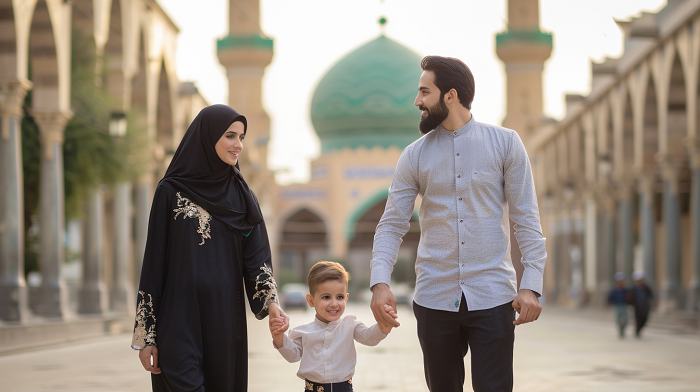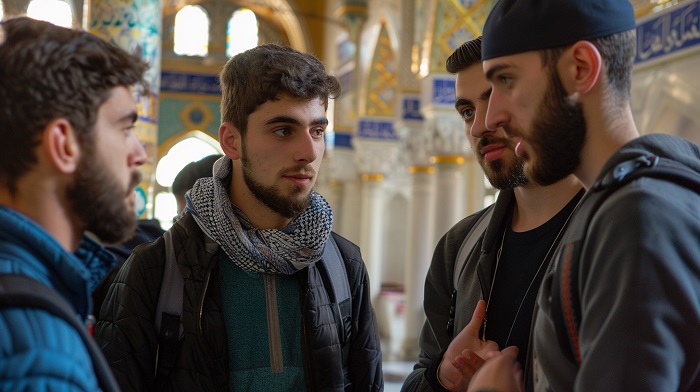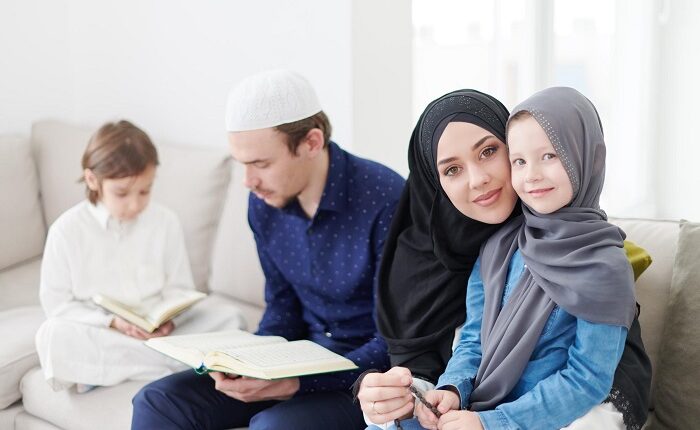Seven Verses From the Quran Concerning Raising Children, Friendship in the Quran, and How to Be Blessed with a Baby Boy or Girl
Contents
We all want our children to become prosperous in both worlds. Children are the future of the Islamic ummah. Therefore, how we raise them is crucial, depending on whether they are boys or girls. We also know that Allah is the one who determines whether we have boys or girls and every other thing that we can think of. However, we can also take specific measures to determine the gender of our children before their conception. Nevertheless, we must be content with what Allah ordains for us. This article on Islam4u discusses how to be blessed with a baby boy or girl, seven verses from the Quran concerning raising children, and the critical issue of friendship in the Quran.
How to Be Blessed With a Baby Boy or Girl
We all know that everything is in the hands of Allah. The Quran clearly states that it is Allah who either gives only sons, only daughters, both sons and daughters to people or makes them infertile.[1] Nevertheless, how to be blessed with a baby boy or girl is an issue that many people wonder about. As strange as it might sound, it is possible to determine the gender of your baby before conception. This includes following a specific diet, timing the day or night of intercourse, and other methods. These methods greatly raise the chances of having a child with the gender of your liking. However, it does not one hundred percent guarantee it. Things could go wrong and you may not have a child with the gender you wanted. Ultimately, we must be content with whatever Allah ordains for us.

Those who want girls should have the mother eat foods rich in calcium and magnesium such as dairy products like milk, cheese, butter, yogurt, and cream. Furthermore, drinks such as coffee and treats such as dark chocolate are excellent for increasing the chances of having girls. Just remember these foods must be eaten before conception, meaning before intercourse. Another method is the timing of intercourse. If couples have intercourse two to three days before ovulation, their chances of conceiving a baby girl will be higher. If they want a baby boy, they must eat foods high in potassium and sodium such as red meat, eggs, carrots, bananas, dates, apricots, and prunes. The timing of their intercourse must be the same day as ovulation.
Seven Verses From the Quran Concerning Raising Children
Many verses in the Quran allude to how you should raise your children. We have chosen seven verses from the Quran concerning raising children that might be very helpful. The Quran guides to what is most upright and gives good news to the faithful who do righteous deeds. There is a great reward for such people.[2] We as parents must practice what we preach if we want our children to listen to us and follow our example. The Quran admonishes by saying, “Why do you say something you do not do? It incurs the wrath of Allah to do such a thing.”[3] It is important to introduce good role models to our children. Allah says there is a good example for us in Prophet Muhammad (s) and Prophet Ibrahim in the Quran (a).[4]

It is vitally important what food we give to our children. Not just the food we eat and feed our bodies but also the food for our spirit. The Quran says that we must look at the food we eat.[5] It is important to realize that the food, both material and immaterial, we eat and feed our children is not poisoned or unlawful. Consuming unlawful food has a tremendously negative impact on a person’s body, spirit, and mind.
Raising Boys or Girls Is Different
Depending on whether your child is a boy or a girl, you must raise them in the correct way. That is, the strategies you implement can greatly differ. Usually, mothers play a pivotal role in raising their daughters as they are closer to them and can tell them certain things that fathers don’t tell them. Likewise, boys are more comfortable sharing some of their problems with their fathers rather than their mothers. Consequently, parents must cooperate and try their best to raise their children the same way that Islam and the Quran have asked them.
To learn about this topic please read the full article on “Seven Verses From the Quran Concerning Raising Children.”
Friendship in the Quran
Much has been said about friendship in the Quran. There is no denying that everyone is heavily influenced by their friends no matter their age. Friends play such a crucial role in the orientation and gravitation of our beliefs, thoughts, intentions, and actions that Allah says in the Quran that a wrongdoer will regret making friends with such and such a person on the Day of Judgment.[6]

The concept of friendship is not limited to this topic. Allah proclaims how He made Prophet Ibrahim his close friend due to His obedience, submission, integrity, and humility toward Allah.[7] Allah also told us to love and be friends with the family of the Prophet (s), meaning the Ahlul Bait (a).[8] In fact, befriending the Ahlul Bait (a) is an obligation that every Muslim must fulfill. On the other hand, Allah tells us not to befriend the Jews and Christians because we will become like them if we do.[9]
The Pious and Friendship in the Quran
الْأَخِلَّاءُ يَوْمَئِذٍ بَعْضُهُمْ لِبَعْضٍ عَدُوٌّ إِلَّا الْمُتَّقِينَ ﴿67﴾
On that day, friends will be one another’s enemies, except for the Godwary.[10]
The word akhillāʾ (أخلاء) is the plural of khalīl (خلیل), which means friend. The reason this Arabic word has been used in the Quran is that a person expresses his khullah (خُلَّة), that is, their need for a friend who fulfills their need.
Akhillāʾ can refer to all those who show love for one another, whether they are the pious whose friendship for one another is for Allah’s sake and not material benefits, or those whose friendship is simply for material and worldly benefits. We learn from the Quran that we must submit to Allah, be content with what He gives us, follow His commands, be His friends, and always pray to Him and ask Him for help. By keeping these in mind, we will pave the way for our prosperity, happiness, and salvation in both worlds.
[1] Quran 42:49-50.
[2] Quran 17:9.
[3] Quran 61:2-3.
[4] Quran 33:21; 60:4.
[5] Quran 80:24.
[6] Quran 25:27-28.
[7] Quran 4:125.
[8] Quran 42:23.
[9] Quran 5:51.
[10] Quran 43:67.

